Nicotine / THR - Statements from Organizations: Difference between revisions
| Line 107: | Line 107: | ||
[[file:FDA.jpg|center]] | [[file:FDA.jpg|center]] | ||
==''' | =='''[https://www.cdc.gov/tobacco/basic_information/e-cigarettes/about-e-cigarettes.html US Centers for Disease Control]'''== | ||
[[file:CDC.jpg|center]] | |||
=='''American Cancer Society:'''== | =='''American Cancer Society:'''== | ||
Revision as of 20:30, 22 May 2021
Thank-you Charles A. Gardner, PhD for the original compilation of this list. Thank-you to the volunteers from around the world who provide statements for us to add to this collection!
"SAFER than smoking"
World Health Organization EURO Office
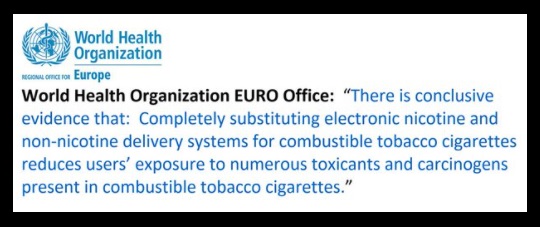
International Agency for Research on Cancer
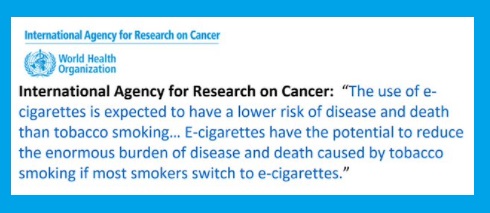
Cochrane Systematic Review

Public Health England
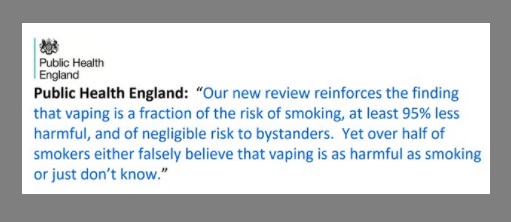
Royal College of Physicians
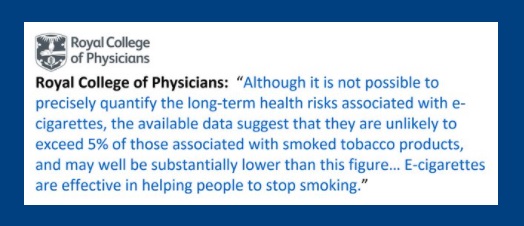
National Institute for Health and Care Excellence

British Medical Association
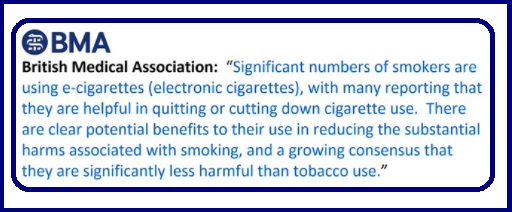
Cancer Research UK
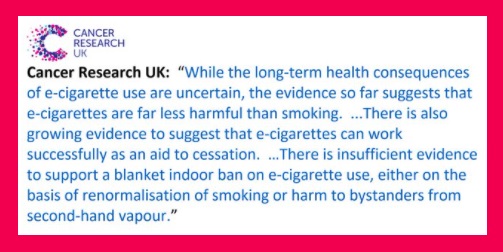
British Lung Foundation

Roy Castle Lung Cancer Foundation
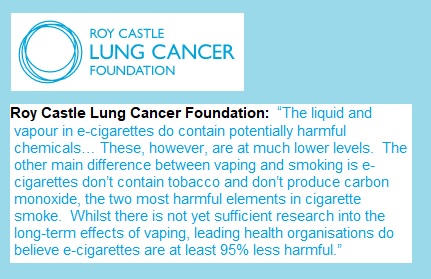
Royal College of General Practitioners

Royal Society for Public Health

Stroke Association UK

Action on Smoking and Health UK

National Centre for Smoking Cessation and Training

British Heart Foundation
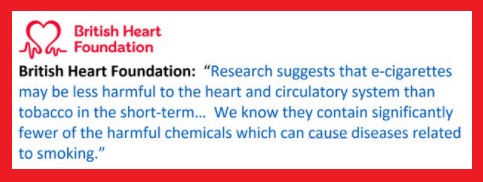
National Fire Chiefs Council

London Fire Brigade

National Health Service Scotland

Health Service Executive Ireland

“The HSE cannot recommend e-cigarettes as a smoking cessation aid, as they are not currently regulated or approved in Ireland for that purpose. However, for those unable or unwilling to stop using nicotine, using e-cigarettes (also known as ‘vaping’) is generally regarded as less harmful than smoking tobacco. We recommend that smokers trying to quit smoking by using e-cigarettes do so in combination with approved supports." (Note: This is from a news article, not from an official policy statement)
"The Health and Safety Executive (HSE) and the Chartered Institute of Personnel and Development (CIPD) also caution against workplace bans on e-cigarettes. HSE’s advice is that “an employer needs to consider e-cigarettes in the wider context of risk in the workplace. We are aware that some organisations have banned their use, but this is not something HSE has advised on.”
New Zealand Ministry of Health
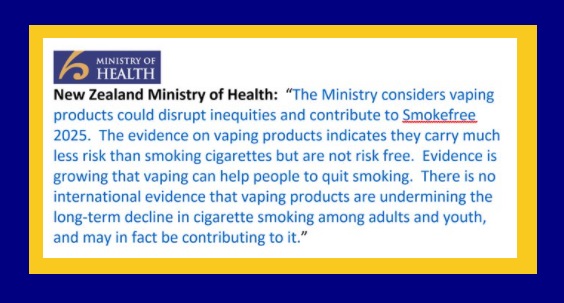
Cancer Society of New Zealand
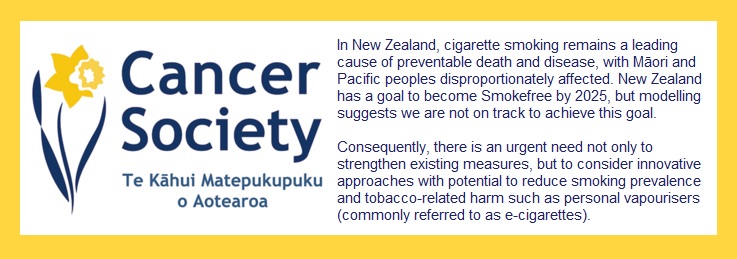
Royal Australian College of Physicians
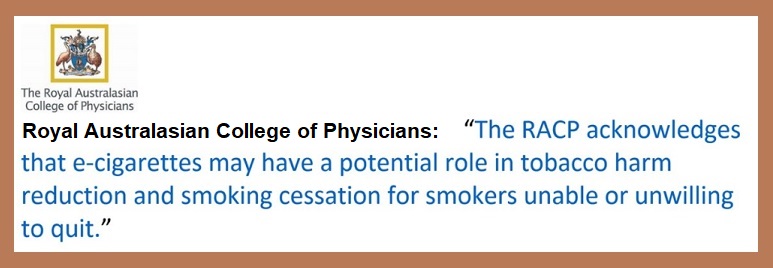
Drug and Alcohol Nurses of Australasia
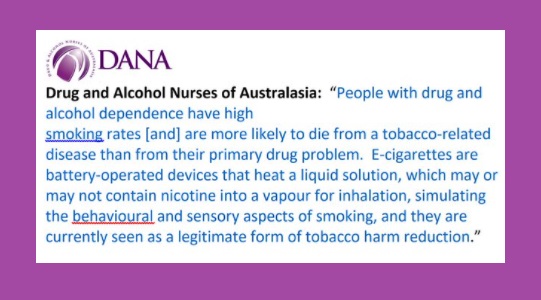
Royal Australian & New Zealand College of Psychiatrists (RANZCP)

German Federal Institute for Risk Assessment

French National Academy of Medicine
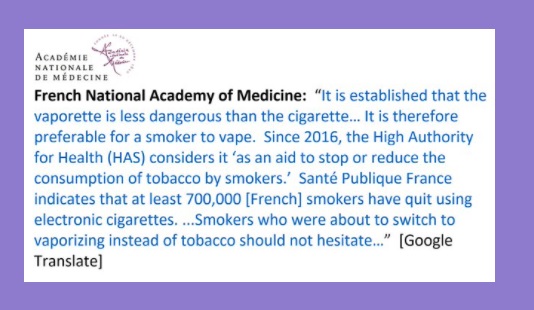
French National Academy of Pharmacy

French National Cancer Institute
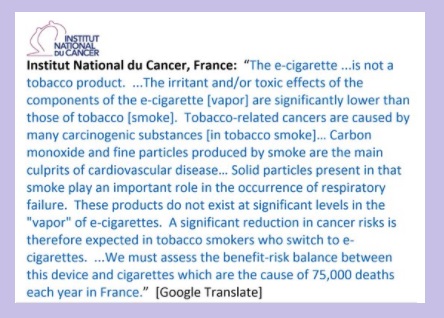
US National Academies of Sciences, Engineering and Medicine
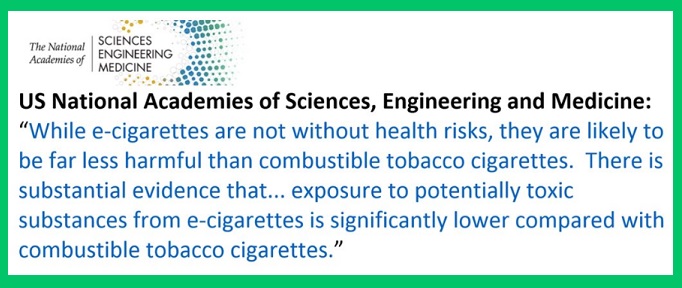
US Food & Drug Administration

US Centers for Disease Control

American Cancer Society:

“Based on currently available evidence, using current generation e-cigarettes is less harmful than smoking cigarettes.” (NOTE: This was the official statement from 2018-2019. As ofNovember 2019, ACS no longer recommends e-cigarettes as a smoking cessation tool. Their stated reason for this change was “e-cigarette use by young people.” Their new statement still says, “former smokers now using e-cigarettes should not revert to smoking.”)
American Heart Association:

American Association of Public Health Physicians:
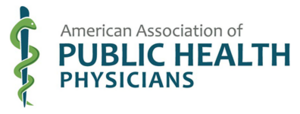
Campaign for Tobacco-Free Kids (CTFK / TFKAF) :

Government of Canada:

While evidence is still emerging, some evidence suggests that using e-cigarettes is linked to improved rates of success. While quitting cigarettes, you may go through a time when you use both cigarettes and vaping products. Switching from tobacco cigarettes to vaping will reduce your exposure to many toxic and cancer causing chemicals.
Canadian Heart & Stroke Foundation:

Suggestions to add to this page
UKCTAS
"Almost every policy listed in the WHO’s paper [their report on ENDS/ENNDS] could easily have the effect of protecting the incumbent cigarette trade, promoting smoking rather than vaping, and lead to increases in non-communicable diseases. It is very likely that widespread uptake of WHO’s policy proposal would ‘reduce harm reduction’ and therefore increase harm."